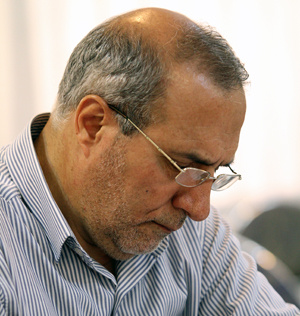Algeria, a Diplomatic Mistake

For some Arab countries -including Algeria, Jordan and Yemen- the North African tsunami has had immediate impact. It will also leave a trace on other Arab countries, most of which witness citizen discontent with their autocratic rules –though in most cases this may bubble under the surface.
Despite their formal differences, Algeria, Jordan and Yemen share a common feature on governance, and that is lifetime presidencies. While a hereditary monarchy rules in Jordan, Ali Abdullah Saleh has presided over state affairs for more than three decades in Yemen (recently he recanted his determination for lifetime presidency and the appointing of his son as heir to the presidency). In Algeria, a similar case holds true. Abduleziz Bouteflika, veteran Algerian Independence War fighter whose second term ended in 2009, was tempted to alter the constitution and bid for a third term in an election in which his victory was predetermined.
The impact on Persian Gulf Arab states depends on various factors, including the rate of literacy and internet access, since poverty is not the initial challenge. For instance in Saudi Arabia there are three distinct classes. The royal family, consisting of about 3000 princes and princesses; the middle class who enjoy welfare, and the lower class who live mostly in the deserts and smaller cities, deprived of the internet. The wave of protests will lose strength when they arrive in Saudi Arabia, emphasized by the fact that the Saudi king boasts the title of “Custodian of the Two Holy Mosques” [in the sacred Islamic cities of Mecca and Medina.] Increasing civil and media freedom and granting further rights to women can help the Saudi family control the situation.
On February 7, 2011, newly appointed Iranian Foreign Minister Ali Akbar Salehi made an official visit to Algeria at a time when the country was clearly in a tense mood as affected by the developments in Egypt and Tunisia.
Diplomatic visits, particularly at the foreign ministerial level, take place either in response to a visit or within the framework of regular negotiations between countries. Joint committees for a project or agreements sometimes send off foreign ministers to another country. They can be also aimed at preparations for visit of a higher official. It is not clear on what basis Salehi’s visit took place, but whatever it was, considering the current circumstances in Algeria it was a miscalculated move and a grave mistake. Salehi made a diplomatic mistake at the onset of his ministerial appointment by making a trip to Algeria, a country that would be obviously shaken by the Egyptian tsunami.
Supporting Bouteflika should have never happened. The Algerian president is a respected Independence War veteran and the redeemer of Algeria from the 1990s bloodbath (ensuing after the military coup upon the Islamic Salvation Front’s victory in parliamentary election.) He should have handled power with decency after his two-term presidency ended in 2009, but against the spirit of democracy, he amended the constitution to stay in power. Lending support to Bouteflika tarnished our diplomatic image, especially considering that a few days after Salehi’s visit we had an outburst of unrest in Algeria following which hundreds of citizens, including four members of the parliament were arrested and the Algerian president had to announce a state of emergency to put a lid on the protests.
A consultation with diplomatic analysts of the ministry who were aware of the situation in that country would have helped Salehi make a better decision. The diplomatic apparatus should survey the situation before preparing for a trip, especially for a minister who is at the beginning of his term and has not regulated his –if any- agenda.

